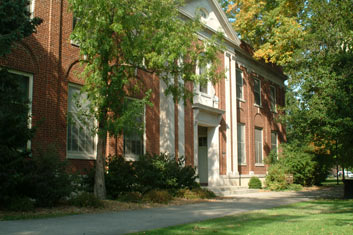
The Child and Family Studies Department promotes education to enrich individual and family life. This approach seeks to integrate conceptual knowledge of family units with educational concepts from:
- natural sciences,
- social sciences,
- business and
- other related disciplines.
Within an applied context of learning, broad explorations are made regarding the needs of the family as a system, emphasizing:
inter-and intra-communication of individuals and families
- interaction with their near environment and
- interrelatedness of the family with other societal systems.
The department commits itself to preparing its graduates. It does this by emphasizing service and being a resource for enhancing family well-being.
The department offers a B.A. in Child and Family Studies, with four areas of concentration:
- Child Development
- Family Studies
- Nutrition
- Foods Studies
The department also offers supportive instruction for Education, Nursing and Women’s Studies, and others.
Students majoring within the department are able to diversify and enrich their studies. The department encourages students to pursue additional learning opportunities through:
- internships,
- independent studies,
- directed studies and
- through the labor program.
Student organizations within the department also offer avenues for professional growth and development.
The Child and Family Studies Department offers instruction in a variety of on-campus facilities. The Emery Building houses:
- faculty offices,
- classrooms,
- laboratories for foods,
- human environments/design,
- a specialized library and more.
The Harrison-McLain Home Management House is utilized for the family resource management practicum. It also serves as an upper level female residence hall for selected programmatic majors. The Child Development Laboratory is located at the Ecovillage. It offers settings for observations and interaction with children from infancy through preschool age.
The CFS program requires a core curriculum of six courses. This ensures CFS majors gain an insightful, holistic perspective of family as a societal unit. The core curriculum provides a common body of knowledge central to understanding family needs. It also acknowledges potential strengths and contributions provided by the family. These core courses include:
- Lifespan Human Development
- Consumer Decision Making
- Fundamentals of Nutrition
- Family Relations
- Family Resource Management (includes the Home Management House as a laboratory component)
- Senior Seminar (Includes an overview of the history and philosophy of the profession areas. Each student conducts and reports on an individual research project).
Additionally, each student must meet programmatic standards for effectiveness in written and oral communication.